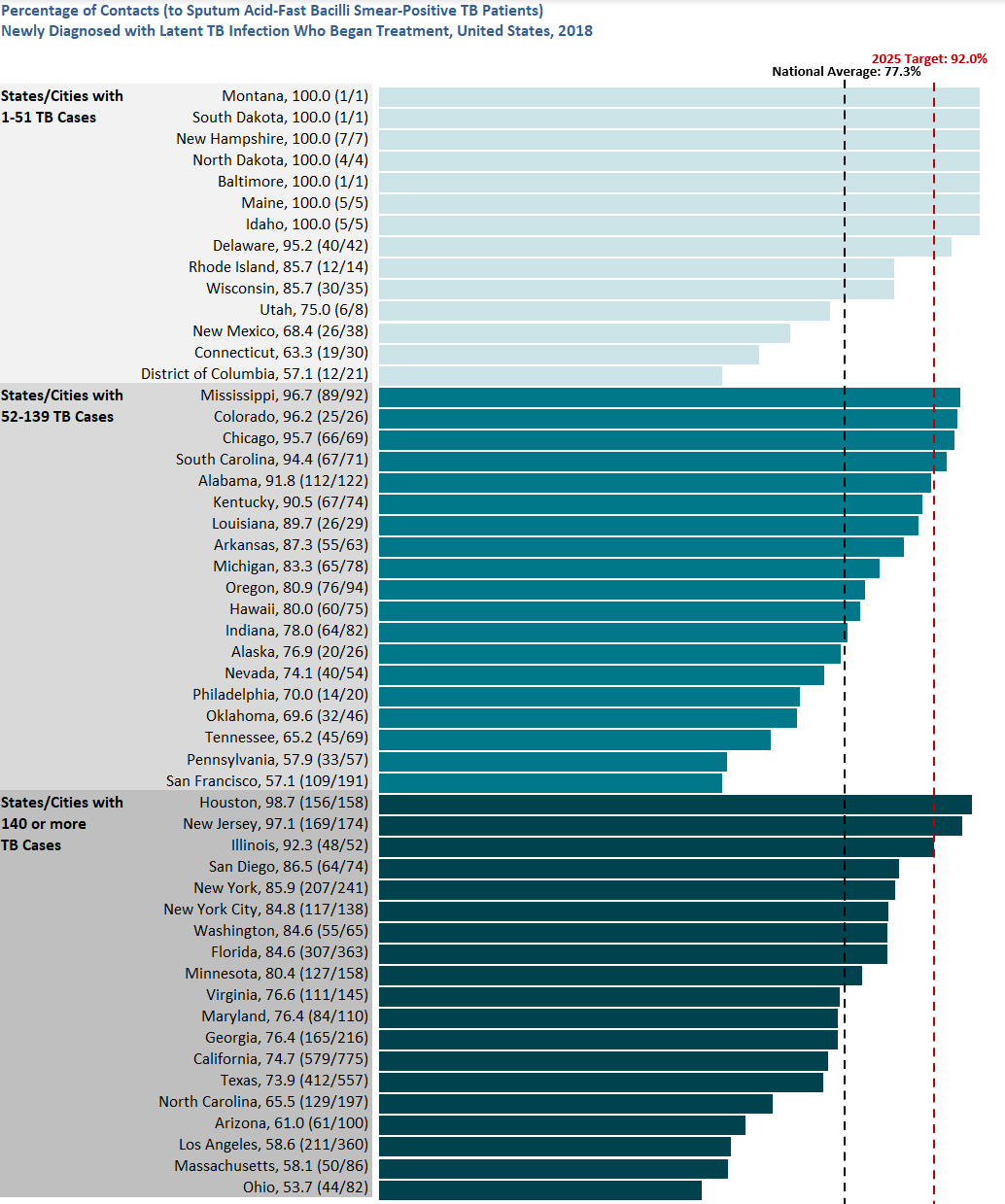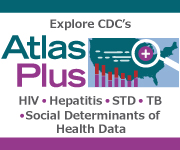2019 State and City TB Report
National TB Indicators are key process and outcome measures for tuberculosis (TB) control programs in the United States. These indicators are selected by CDC in cooperation with partners in state and local health departments. Data for calculating these indicators are derived from existing surveillance systems such as the National Tuberculosis Surveillance System (NTSS) and the Aggregate Reports for Program Evaluation (ARPE). CDC publishes TB indicator data to assist in:
- Evaluating progress toward achievement of national objectives through monitoring of TB program performance
- Assessment of needs for education and technical assistance
- Identification of areas that need improvement
State and City Grouping
For the purposes of this report, states and cities were categorized into 3 groups based on the numbers of TB cases reported to NTSS. The cutoffs for the groups were determined by the numbers of cases that fell within the 33rd and 66th percentiles. City results for Baltimore, MD; Chicago, IL; District of Columbia; Houston, TX; Los Angeles, CA; New York City, NY; Philadelphia, PA; San Diego, CA; and San Francisco, CA are not included in the respective state results (e.g., percentage of known HIV results for Texas are exclusive of known HIV results for Houston).
Indicator Year
Data are presented for the relevant year for each indicator:
- 2019 for TB incidence and known HIV status
- 2018 for latent TB infection (LTBI) positive contacts of smear positive cases who started and completed preventive treatment
- 2017 for completion of treatment of newly diagnosed TB cases
Background & Data Sources
The Centers for Disease Control and Prevention (CDC) provides funding for tuberculosis (TB) control activities in 50 U.S. states and 9 cities (Baltimore, MD; Chicago, IL; District of Columbia; Houston, TX; Los Angeles, CA; New York City, NY; Philadelphia, PA; San Diego, CA; and San Francisco, CA) through the Tuberculosis Elimination and Laboratory Cooperative Agreement (agreement number PS20-2001). Information about each newly reported case of TB in the 50 states and 9 cities is submitted to CDC’s National Tuberculosis Surveillance System (NTSS) with a standard form, the Report of Verified Case of Tuberculosis (RVCT). The initial case report includes:
- a patient’s demographic data, occupation, initial drug regimen
- information on HIV status, substance use, housing status, and residence in correctional or long-term care facilities
Follow-up reports collect drug susceptibility test results for Mycobacterium tuberculosis isolates and treatment status, among other items. Data in this report are based on the final 2019 dataset from the National TB Surveillance System (NTSS).
CDC also collects information from states and cities about their contact investigation activities: finding and examining persons who have had contact with TB cases and treating those found to have TB disease or LTBI. Data for contact investigation are reported by each TB control jurisdiction annually through the ARPE.
For More Information:
For more information about TB disease and TB prevention and control activities in the United States, visit the National TB Controllers Association and the CDC TB website. If you need additional state-specific data not available in this report, you can contact your state TB control office.

